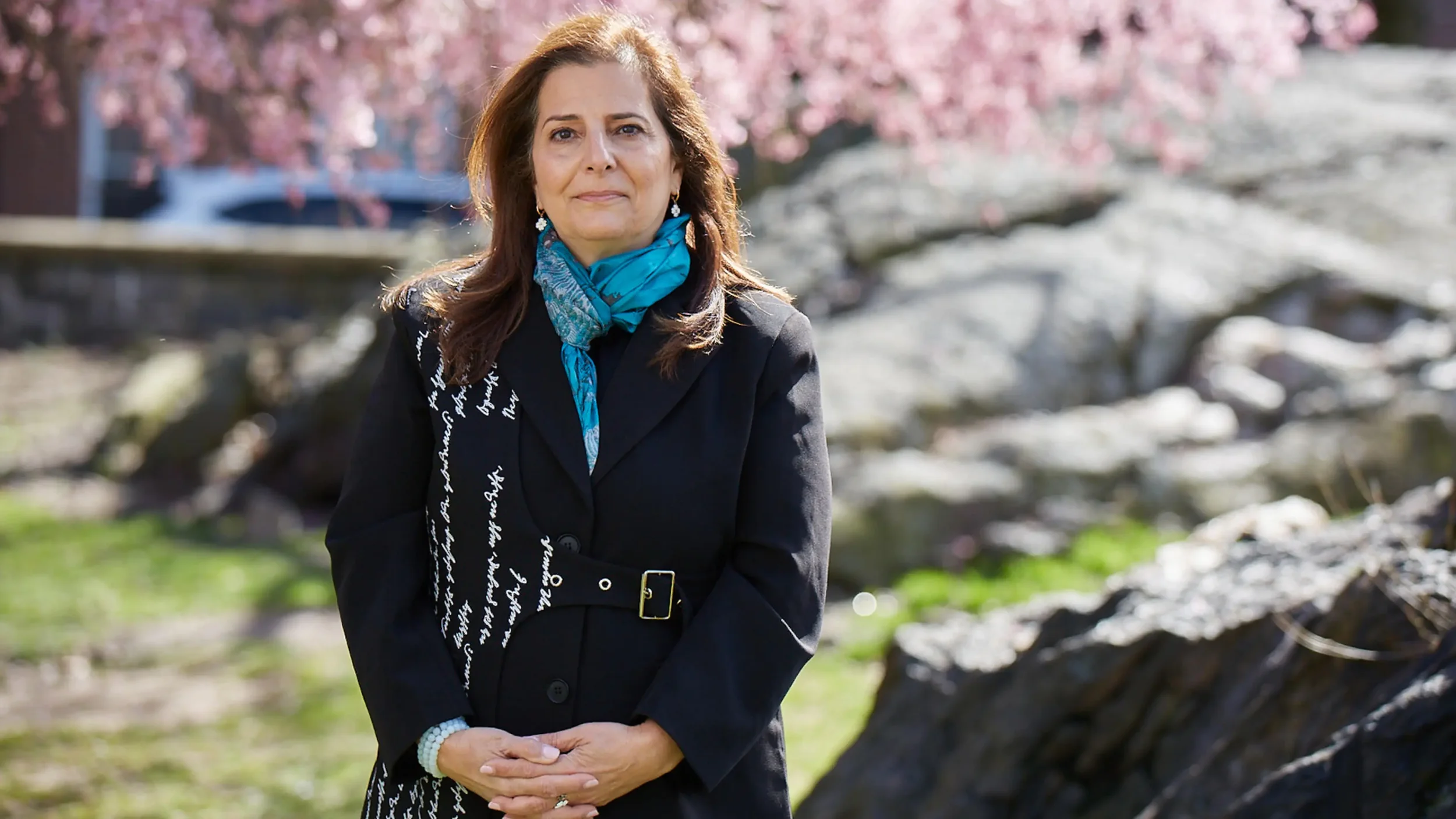Kim Hekimian – Nutrition and Public Health Expert
Kim Hekimian - courtesy of Matthew Bender
What does that mean? A Nutrition and Public Health Expert refers to someone who has studied and learned how to improve the lives of children and adults in countries who have faced economic and war related blockades or who have poor means of good food availability. That person assesses and improves the dietary habits of populations by creating community-based programs, educating the public on nutrition and advocating for policies that promote healthier eating and reduce diet-related diseases. They also plan and coordinate nutrition programs and services for communities, adapting them to meet specific cultural needs. That is what Kim Hekimian has done and this is her story.
Early Education and Interests
U.S. born Columbia University Medical Center educator, Kim Hekimian, PhD has devoted the better part of her career to a particular project in Armenia helping to ensure a thriving population with an emphasis on maternal and infant nutrition.
In 1988 when the news broke that a debilitating earthquake had occurred in Soviet Armenia, Kim learned that the United Nations and USAID (United States Agency for International Development) were beginning to discuss humanitarian assistance to the victims. This intensified Kim’s interest in maternal and child health. She wondered if there was a way she could help.
A few years later she enrolled into a PhD program at Johns Hopkins University and decided to do her dissertation in Armenia. She met with people from USAID and UNICEF in Yerevan and they advised her to focus on issues of infant mortality. The Soviet Union had collapsed and Armenia was an independent country. Azerbaijian had attacked Artzakh, a region where Armenians had lived for thousands of years. They had devised an economic blockade which lasted for several years. Without electricity to boil water the mothers were forced to mix infant formula with poor quality water. The infant mortality rate was accelerating. Kim began to study the benefits of breast-feeding versus infant formula.
Shortly thereafter the American University of Armenia opened its public health program with Dr. Haroutune Armenian, the dean and later president of AUA. He asked Kim to stay on to help set up the master’s program in public health as well as teach and develop a research center. She has been a visiting faculty member for more than 25 years.
The Challenges in Armenia
Dr. Hekimian speaks at an AUA conference titled Nutrition Today Matters Tomorrow. - https://aahpo.org/
“To better understand Armenia’s challenges Dr. Hekimian spent summers with families in the Lake Sevan region learning how poverty, scarcity, misinformation and trauma can destroy healthy eating habits and create dangerous living conditions such as stunted growth in children. In 2010 a Demographic and Health Study was conducted throughout Armenia. After measuring height, weight and age of children, they found that almost 20% under the age of five had stunted growth. When children do not eat well in those critical years, it can also weaken their thinking, reasoning or remembering abilities.”
Laurel L. Constantine, AGBU Insider, June 2024
Help is on the way
Dr. Hekimian conducted the first national survey of infant nutrition practices in Armenia. The findings led to a four year nation-wide breastfeeding promotion program. At the end of the program it was found that breastfeeding rates tripled and the mortality rate declined in children aged from 1 month to 1 year. She also quickly focused on nutrition and dietary approaches to help meet the recommended dietary allowances for women of reproductive age.
Dr. Hekimian (left) moderates a panel discussion at the American University of Armenia (AUA) with then-AUA president Dr. Karin Markides and Dr. Noubar Afeyan, the co-founder and chairman of the biotech company Moderna.
To avoid food shortages in Armenia Dr. Hekimian recommends that families stock up with shelf stable high nutrient food such as beans, lentils, chickpeas and bulghur wheat. During the war with Azerbaijian the Armenian government had stockpiled white flour. Other than calories white flour has no nutritional value. Nutrition education is very important.
Armenia has made much progress in the past 30 years because the American University of Armenia Public Health actively works to improve population health and health service in Armenia. Public health professionals must be leaders in public health, health services research and evaluation and health care delivery and management.
Dr. Hekimian was asked how she engages with local public health decision makers as a diasporan advisor? “I am physically situated at the health ministry offices. I have a portfolio of areas to advise on, bringing my 30 years in public health to the table at the highest policy level. The current Minister of Health and the first Deputy Minister of Health are both graduates from AUA. I have had a 30 year head start in this regard, thanks to the convergence of personal intentions and historical events. In other words, I was in the right place at the right time. And from my perspective, for all the right reasons.”
Laurel L. Constantine, AGBU Insider 2024



